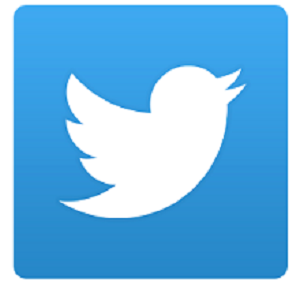 The Health Professions Council of SA should 'develop social media guidelines and train medical trainers in this specific area', writes Dr Brenda Kubheka of the University of the Witwatersrand, in the SA Medical Journal.
The Health Professions Council of SA should 'develop social media guidelines and train medical trainers in this specific area', writes Dr Brenda Kubheka of the University of the Witwatersrand, in the SA Medical Journal.
The ethical and legal pitfalls facing health professionals in an age of instant‚ global communication are akin to a minefield. A report in The Times notes that the furore around low-carbohydrate high-fat advocate Professor Tim Noakes is a case in point. He emerged victorious after a long and bruising disciplinary after giving dietary advice to a breastfeeding mother on Twitter. Academic dismissal‚ employment termination and deregistration from professional boards are some of the sanctions faced by health professionals abroad.
Brenda Kubheka from the School of Public Health‚ faculty of health sciences at the University of the Witwatersrand says in the report that a whole new generation of medical students have emerged with digital footprints and established social media habits “unimaginable to their seniors”.
Writing in the South African Medical Journal‚ she cited a study that found 52% of undergraduate medical students admitted to having “embarrassing photos on Facebook”. But‚ she warned‚ the same laws and codes of conduct apply in cyberspace as they do in the real world in a paper titled‚ Ethical and legal perspectives on use of social media by health professionals in South Africa.
“Failure to uphold ethical standards on social media exposes patients to embarrassment and psychological harm‚ thus undermining the principles of beneficence and non-maleficence‚” she wrote.
Social media is a valuable tool for health promotion due to its massive reach. Group-based communication using WhatsApp enables medical professionals to communicate about shift work‚ traffic issues and‚ for example‚ share pictures of patients when requesting second opinions from colleagues.
The report says Kubheka’s paper offers some useful pointers on cyberspace etiquette for medical professionals. They include: think carefully before accepting friend requests from patients or sending friend requests to them‚ because of the risk of blurring professional and personal lives; sharing patients’ photographs‚ even for educational purposes‚ might constitute an invasion of privacy; do not take photographs without obtaining informed consent from patients; share generic information online. Avoid responding with direct medical advice to individuals; and making negative comments about colleagues and patients on social media can be viewed as bullying and unprofessional.
“Professionals ought to ask themselves before posting on social media whether sharing certain information is legally and morally defensible‚” said the paper.
It recommended that the Health Professions Council of South Africa (HPCSA) “develop social media guidelines and train medical trainers in this specific area”. Medical schools were also encouraged to address social media issues.
Abstract
Use of social media has increased exponentially throughout the world. Social media provides a platform for building social and professional relationships that can be used by all, including healthcare professionals. Alongside the benefits of creating networks and spreading information wider and faster than is possible with traditional communication channels, however, it presents ethical and legal challenges. For health professionals, it poses a threat to confidentiality and privacy owed to patients, colleagues and employers. It is vital for health professionals to acknowledge that the same ethical and legal standards apply both online and offline, and that they are accountable to professional bodies and the law for their online activities. This article seeks to explore the ethical and legal pitfalls facing health professionals using social media platforms. Importantly, it seeks to create awareness about the cyberpsychology phenomenon called the ‘online disinhibition effect’, responsible for lowering restraint during online activities.
Authors
Brenda Kubheka
[link url="http://www.timeslive.co.za/scitech/2017/04/27/Do-you-know-what-your-doctor-has-shared-on-social-media1"]The Times report[/link]
[link url="http://www.samj.org.za/index.php/samj/article/view/11883"]SA Medical Journal abstract[/link]
